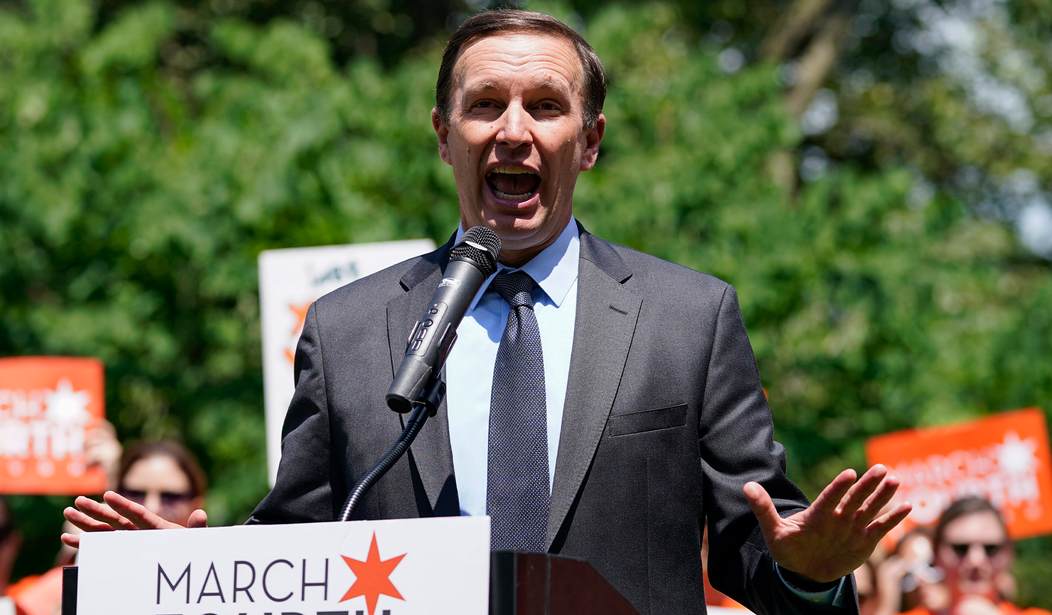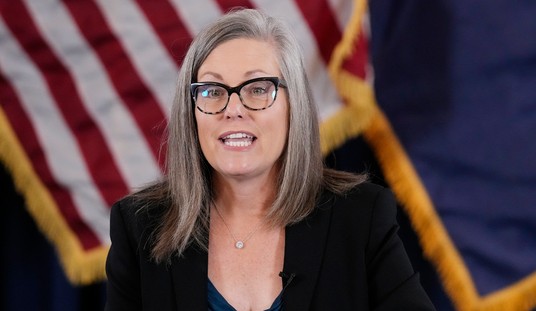One of the most common tropes of the anti-gunners is their claim that if you don’t support their gun control efforts you don’t care about kids, or at the very least you care more about your guns.
Sen. Chris Murphy (D-CT) is the latest to deploy that idiotic argument in support of criminalizing a constitutional right, telling a podcast host this week that Republicans “don’t give a crap” about kids and “gun violence”.
Murphy made the comments on Salon’s “Salon Talks” podcast published Tuesday.
“So to me, we can’t catalog the epidemic of gun violence merely by how many shootings we’ve had or even how many homicides we’ve had. You have to talk about a generation of kids, specifically in these violence-prone neighborhoods, that we are literally losing because their brains change when they’re exposed to war-like levels of trauma,” Murphy said.
“It is beyond me why Republicans who claim to care about the health of our kids don’t seem to give a crap about our children who are being exposed to these epidemic, cataclysmic rates of gun violence,” Murphy said.
This reminds me of when Newtown Action’s Po Murray told Bearing Arms contributor Ryan Petty that he must support children being massacred since he’s not in favor of an “assault weapons” ban.
— Po Murray (@po_murray) October 16, 2022
Petty’s daughter Alaina was one of the victims at Marjory Stoneman Douglas High School in Parkland, and it was absolutely disgusting to see Murray’s response. But this is sadly the mindset of many gun prohibitionists, including Chris Murphy.
I don’t know a single gun owner who loves their firearms more than their children, but I know plenty who don’t believe that the gun control “solutions” offered by anti-gun hacks like Murphy are the answer to reducing violent crime and improving the safety in the violence-prone neighborhoods that Murphy spoke about. I’ve written before about my own initial exposure to gun control and its lack of effectiveness, which I discovered when I fell in love with a woman who lived in the murder capital of the United States.
It was a normal evening for us; we’d spent the first part of the night on the computer and then as the hour grew late I called her and lay on my bed as we talked about our future together. We were growing sleepy when I heard something I’d never heard before; the sound of gunshots. I knew they had to be close for me to hear them over the phone, and with some alarm I asked Elaine if she was okay. She didn’t answer.
I’ll never forget that helpless feeling when only silence greeted my voice. I grew louder, shouting into the phone, “Talk to me! Where are you? What’s going on? Elaine, answer me!!” I didn’t know her address, or I would have called the Camden Police Department to beg them to check on her and the kids. Instead, I sat helplessly. At some point I stupidly hung up the phone, and tried to call her back, but only got a busy signal.
It was the longest night of my life, spent pacing and chain smoking, tears streaming down my face as I begged God not to take her from me before I even had a chance to begin my life with her by my side. I prayed that her kids were safe, and I swore that if I had the chance, I would do my best to protect them from any harm.
As the sun rose over the Oklahoma City skyline, I decided to call her office once it opened. Maybe one of her co-workers could check on her. While I waited impatiently, I tried to search the internet for news of any overnight shootings in Camden, but couldn’t find any. In retrospect, I should have known I wouldn’t have. Shootings in Camden, home to some of the most restrictive gun laws in the country, are so common that they’re never a big story.
As soon as I thought someone might be in her office, I dialed the number with trembling fingers. I thought about what I would say to the stranger who answered the phone, and wondered if I could even get through my request without breaking down in tears again. And then I didn’t have to wonder, because Elaine answered the phone.
I won’t get into the details of my reaction, except to say that yes, I cried again. She thought I was overreacting, because she had simply fallen asleep as we were talking. She didn’t even consciously hear the shots fired, because the sound was so common that she had learned to tune it out. And that was the moment I realized that it’s not just 911 that was a joke in her neighborhood. So was the idea that gun control had made Camden any safer.
Camden, New Jersey has become a safer city in the decades since that sleepless night, but it’s not because of any new gun control efforts. Changes in policing have greatly improved the situation on the streets, though the city still has more than its share of problems.
We’re not going to gun control our way to safety in cities like Camden, Chicago, Baltimore, or Hartford. Instead, if we care about keeping kids safe, we need to have a serious discussion about the lack of consequences for many young offenders. Take the case of 17-year-old Lawrence Griffin, who’s been charged in the murder of 12-year-old Ronnel Smith at a birthday party in West Allis, Wisconsin last month. Though Griffin has yet to reach adulthood, prosecutors say he’d already managed to rack up a number of felony offenses as a juvenile.
According to the criminal complaint, Griffin tried to snatch a pair of designer glasses from Smith during the birthday party at Bug n Out Lounge. Prosecutors say after a confrontation, Griffin pulled out a gun and chased the boy before firing the gun. Police said the 12-year-old died at the scene and Griffin ran off.
On March 3, the complaint says an unrelated police chase ended with officers arresting Griffin and recovering a gun. Prosecutors say the gun matched the weapon used in the West Allis bar shooting.
“He has a significant record, was on felony probation at the time of this alleged offense,” said Thomas Hasle, prosecutor. “He has four adult convictions, six adult read-in convictions, six juvenile adjudications.”
How does a 17-year-old have four adult convictions and a dozen other adjudications and still end up on felony probation, free to walk the streets? And what gun control law would stop someone like Griffin from illegally gaining possession of a firearm and using it in the commission of a violent crime? If Murphy would start asking questions like these maybe we could actually get somewhere, but frankly, I don’t think he gives a crap about doing anything to reduce violent crime that doesn’t involve more gun control.








Join the conversation as a VIP Member